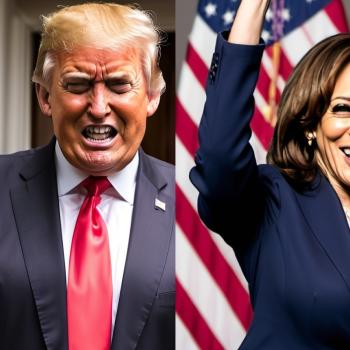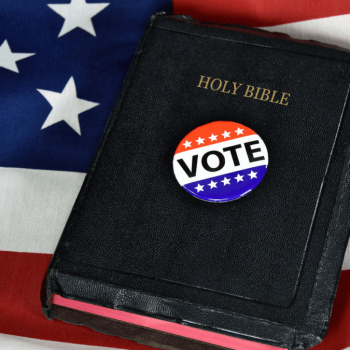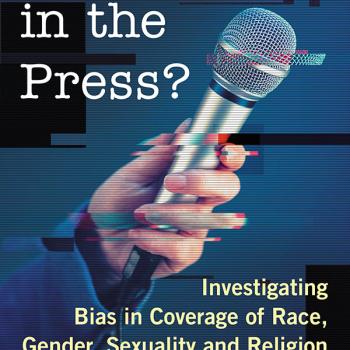I had a talk with a graduate student the other day that got me to thinking. And of course when I get to thinking, I can get into all sorts of trouble. So let me see how much trouble I get into when I write out my thoughts.
We were talking about how some of the campus protests had religious elements to them. There was a distinct morality that individuals have to abide. There are rituals such as the ritualistic chanting that often occurs. And you have charismatic figures who inspire individuals in the faith. They are what Max Weber would call prophets, although as I pointed out to the student, there does not seem to be a central prophet for the groups to rally around. I do not see Jesus, Mohammed or Buddha emerging any time soon.
What was really interesting was when we considered the ways individuals feel compelled to abide by the demands of the protestors. I am not just talking about the administration. Students and others who are not part of the protest also feel compelled to abide by the demands of activists. A great example of this can be seen during the recent controversy at Evergreen State College. At one point the Equity committee developed a plan. To show compliance they had individuals get on a hypothetical canoe.
You really have to see this to understand what happened here. Here is the clip. Start at 18:35 and go to about 25:00. Can you imagine the pressure to be in that room and being told that if you do not get into the imaginary canoe that you will be left behind? It is one of the best examples of a secular form of ritual I have seen in years.
I am comfortable with defining movements like intersectionality or what we may call “being woke” as religion because I have an expansive definition of religion. I define religion as how we answer questions of meaning. Many of us do it in an otherworldly framework. Others look to secular ideologies to deal with questions of meaning. But we all have to deal with those questions, and the way we do so is through religion.
Just to illustrate this tendency, let’s look at one question of meaning. What is our purpose? There has to be more to life than to just consume fuel, sleep and eventually die. My Christian faith gives me purpose in my effort to become the type of man God would have me to be. To strive to be “Christlike” and to further the kingdom of God is very purposeful. But fighting inequality is also a valuable purpose. Using the secular ideology of intersectionality can easily support a notion of purpose in efforts to end inequality. It is a cause many find important enough so that they dedicate their lives to it. I argue that this cause becomes their religion.
I find the term “woke” to be an interesting one. What does it mean to “become woke?” It is to gain a special insight, right? How is that different from being born again? We Christians believe that this rebirth allows us to have a new relationship with God. In a sense we gain a new insight that we did not have before. In this way the talk about being woke mimics the talk about being born again. This is yet another way secular ideologies imitate systems of supernatural beliefs.
Many individuals resist the idea that secular ideologies are types of religion. Some individuals do not tie their belief system to concepts such as faith. They prefer to think of their ideas as driven purely by reason and rationality. I understand this desire, but it does not comport to the reality of how their ideas play themselves out. And I fear that failure to recognize the religious nature of secular ideologies creates real and troubling concerns.
For example, consider this implication of the fake canoe at Evergreen. Undoubtedly individuals felt pressure to get “in the canoe” even if they were not committed to the plan devised by the diversity committee. One can say that their heart was not in it, but they wanted to be perceived as a good person. This happens with Christians as well. Some people go to church not because they are seeking to be closer to God, or want to be in a Christian community, but because they want to look good. That is occurring less in a post-Christian society, but it still happens.
But this leads to an even bigger problem. The actions of Christians can become more important than the commitment to our faith. Individuals perceive themselves as a good Christian not because they are seeking a relationship with Christ, but because they act in a way that Christians are expected to act. Their actions do not come out of their commitment to their faith but rather they attempt to use their actions to illustrate they have faith.
When I was a young Christian, I attempted to illustrate my faith through my actions. But over time I begin to learn of a concept known as legalism. That concept rightly describes the tendency to rely on obeying rules rather than living out one’s faith. This does not mean that there are no rules. But we do not embed our faith in the rules. The rules are to help us live out what we believe but not to replace what we believe.
As I developed as a Christian, I struggled with the subject of legalism. How can I be true to the morals and the rules that emerged from that morality without reducing my faith to a bunch of rules? This is a question with which most thinking Christians have struggled. We eventually develop a way to balance the need to obey the norms in the faith but without making that obedience to be what describes us as a Christian.
But I wonder if those who promote and protect a morality emerging from being woke have had similar struggle? Are they troubled by individuals who say all the right things and do all the right actions but do not change their hearts? Is there a concern that legalism may distort the meaning of this moral system? Or is merely compelling “woke” statements and actions sufficient for such activists?
One thing we Christians have learned is that legalism does not make for a truly devoted follower. Those who follow by legalistic application to the religion are more likely to shift to other beliefs when things get tough. That is to be expected because they did not develop an intrinsic understanding of our moral system in the first place. We also note that legalistic Christians really fail to capture some of the nuance in our religion and thus are less likely to grow and develop spiritually. It is not unexpected when they replace one legalistic framework for another.
I know of the debates about legalism from a Christian perspective. I suspect that many of those lessons also apply when we look at activists in today’s campus movement. But I hear little, if any, talk about legalistic concerns by such activists. I believe it is because they do not see the religious elements of their ideology. As such they have failed to understand the type of shallow “faith” some may have and that this shallowness is not remedied by placing people in an imaginary canoe.
In my faith tradition we have learned about discipling, or socializing, individuals so that they appreciate some of the deeper nuances of our faith and can grow deeper. We have learned about how to deal with balancing legalism with license. We have not always been perfect in our efforts. But we have recognized the importance of taking individuals beyond a shallow understanding of the faith and avoid reducing our faith down to a bunch of rules.
I think those involved with the type of woke activism would do well to consider the implications of legalism in their movement. They may have to read Christian literature since there is little academic literature that I know of that deals with these issues. But they would do well to consider how compelling people to get into a canoe is not a substitute for winning over their hearts and minds. They would do well to recognize the religious nature of their movement and see how religious groups have handled issues such as legalism.
I do not offer this advice in any hopes of advancing a “woke” agenda, but so that we can have a better understanding of the nature of this movement. Seeing this movement as a religious one helps us to avoid mistaking it as a purely rational endeavor, which it is not. Furthermore, understanding this movement as a type of religion helps us decide if this is where we want to find answers to our questions of meaning.
















